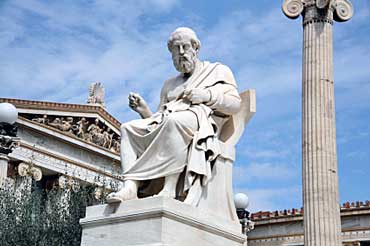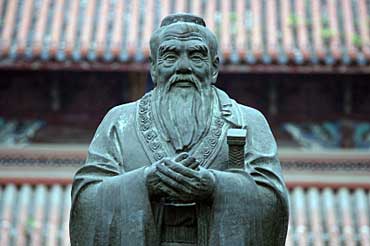


Civics is the study of government and politics.
It is concerned with the rights and obligations of governments and citizens.
Civic theories vary according to cultures and regions.
The civic theories of Western and Eastern cultures are distinct.
Plato, a Greek philosopher, influenced civics in the West; while Confucius, a Chinese philosopher, influenced civics in the East.
Plato believed that reason and wisdom should govern, not rhetoric and persuasion.

Confucius taught "personal and governmental morality, correctness of social relationships, and justice and sincerity."
Civic theories of the past focused mostly on the balance of power between an aristocracy and monarchy.
It was not until modern times that political rights were extended to include all people.

John Locke's political theories influenced the American Declaration of Independence.
His social contract theory says that "people give up some rights to a government in order to receive social order."
Modern forms of government include democracies, socialism, and communism.
Most of the differences among these three types of governments can be found in their economic systems and their theories of individual rights versus state rights.
Other modern governments are monarchies or dictatorships with most government power in the hands of one person.
1. "Until philosophers rule as kings or those who are now called kings and leading men genuinely and adequately philosophize, that is, until political power and philosophy entirely coincide, while the many natures who at present pursue either one exclusively are forcibly prevented from doing so, cities will have no rest from evils,... nor, I think, will the human race." - Plato
2. Adept Kung asked: "Is there any one word that could guide a person throughout life?"
The Master replied: "How about 'shu': never impose on others what you would not choose for yourself?" - Confucius
3. No man's knowledge here can go beyond his experience. - John Locke
1. What is civics?
2. Name a Greek philosopher who influenced Western civics.
3. Who was Confucius?
4. What English philosopher had an influence on the Declaration of Independence?
5. What are four types of government in the modern world?